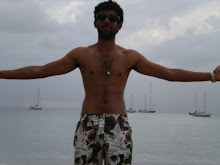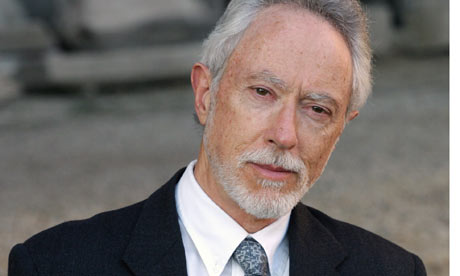These are inclined to change order depending on the day, so there's no ranking system. It might not even be these same writers all the time. But that's who it is today. Pretty easy list to make, I just have to look at the bookshelf. Novelists only since I don't read enough non-fiction or poetry these days, unfortunately.
5. Orhan Pamuk - Turkish
Reference Novels: Snow; The Museum of Innocence; Istanbul: Memories and the City
Why: I have always been of the opinion that love stories cannot be serious literature (in modern times, anyway) unless it's unrequited love. Snow disproved that for me, despite its complex politics and heavy symbolism it's essentially a tragic love story. The Museum of Innocence ( a book I found accidentally in Shakespeare&Co) I also love because of the emphasis on obsessive love and the importance of things (garbage, really) in fueling obsession.
4. Ian McEwan - English
Reference Novels: Atonement; On Chesil Beach; The Comfort of Stranger
Why: It's most difficult to explain why I like McEwan. His books (to me) are all different except in terms of the themes of ordinary people adapting to the change in situations brought about by one moment. The moments are all different though, in every novel. I think I love the writing most. McEwan crafts the type of story that can get very dull before the 'changer' if someone with tremendous ability isn't at work. Luckily, he's got lots of ability.
3. J.M. Coetzee - South African/ Australian
Reference Novels: Disgrace, Youth: Scenes from a Provincial Life II; Waiting for the Barbarians
Why: If Naipaul dies, Coetzee is the writer with most complete mastery of the English language. Coetzee can write in one paragraph what other writers would take pages to do. And his level of comprehension of literature is immense too, as can be seen in his essays. His novels are that of supreme technical as well as literary ability. One or the other would equate to a dull novel, but both equals only good stuff.
2. Haruki Murakami - Japanese
Reference Novels: Kafka on the Shore; 1Q84; Blind Willow, Sleeping Woman
Why: Blind Willow, Sleeping Woman is also on my desk right now (I don't use it so much for composition reference as for pacing of mundane events). Murakami gives me that dose of surrealism I need with that representation of loneliness and alienation that make it relevant. Murakami's books are both very real and very fantastic and there's seamless flow between the two (not like Magical Realism) and it's strangely entertaining. Perhaps a bit because it shouldn't work so well but does.
1. Margaret Atwood - Canadian
Reference Novels: Cat's Eye; The Year of the Flood; The Blind Assassin
Why: I don't just love her cause she's also an Ontario native, but it doesn't hurt. I like her sci-fi stuff least (mostly because of my sci-fi issues) but they're still very good. Her characters are amazingly developed as are her analysis of emotions and situations. I feel as if I could quote from every page of Cat's Eye.
5. Orhan Pamuk - Turkish
Reference Novels: Snow; The Museum of Innocence; Istanbul: Memories and the City
Why: I have always been of the opinion that love stories cannot be serious literature (in modern times, anyway) unless it's unrequited love. Snow disproved that for me, despite its complex politics and heavy symbolism it's essentially a tragic love story. The Museum of Innocence ( a book I found accidentally in Shakespeare&Co) I also love because of the emphasis on obsessive love and the importance of things (garbage, really) in fueling obsession.
4. Ian McEwan - English
Reference Novels: Atonement; On Chesil Beach; The Comfort of Stranger
Why: It's most difficult to explain why I like McEwan. His books (to me) are all different except in terms of the themes of ordinary people adapting to the change in situations brought about by one moment. The moments are all different though, in every novel. I think I love the writing most. McEwan crafts the type of story that can get very dull before the 'changer' if someone with tremendous ability isn't at work. Luckily, he's got lots of ability.
3. J.M. Coetzee - South African/ Australian
Reference Novels: Disgrace, Youth: Scenes from a Provincial Life II; Waiting for the Barbarians
Why: If Naipaul dies, Coetzee is the writer with most complete mastery of the English language. Coetzee can write in one paragraph what other writers would take pages to do. And his level of comprehension of literature is immense too, as can be seen in his essays. His novels are that of supreme technical as well as literary ability. One or the other would equate to a dull novel, but both equals only good stuff.
2. Haruki Murakami - Japanese
Reference Novels: Kafka on the Shore; 1Q84; Blind Willow, Sleeping Woman
Why: Blind Willow, Sleeping Woman is also on my desk right now (I don't use it so much for composition reference as for pacing of mundane events). Murakami gives me that dose of surrealism I need with that representation of loneliness and alienation that make it relevant. Murakami's books are both very real and very fantastic and there's seamless flow between the two (not like Magical Realism) and it's strangely entertaining. Perhaps a bit because it shouldn't work so well but does.
1. Margaret Atwood - Canadian
Reference Novels: Cat's Eye; The Year of the Flood; The Blind Assassin
Why: I don't just love her cause she's also an Ontario native, but it doesn't hurt. I like her sci-fi stuff least (mostly because of my sci-fi issues) but they're still very good. Her characters are amazingly developed as are her analysis of emotions and situations. I feel as if I could quote from every page of Cat's Eye.






Comments
Post a Comment